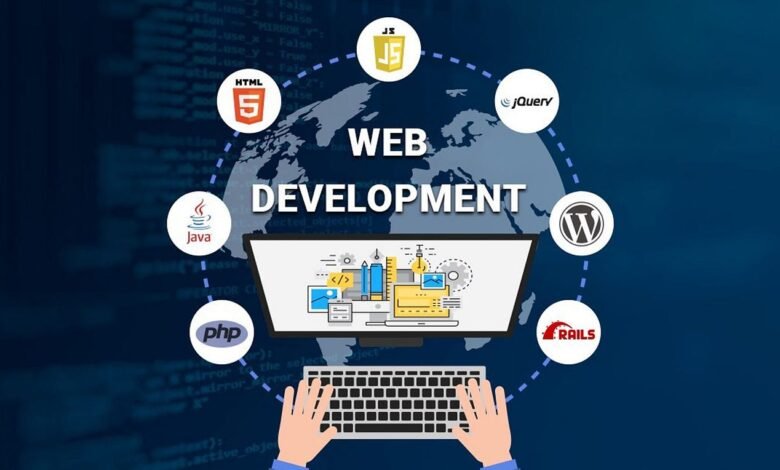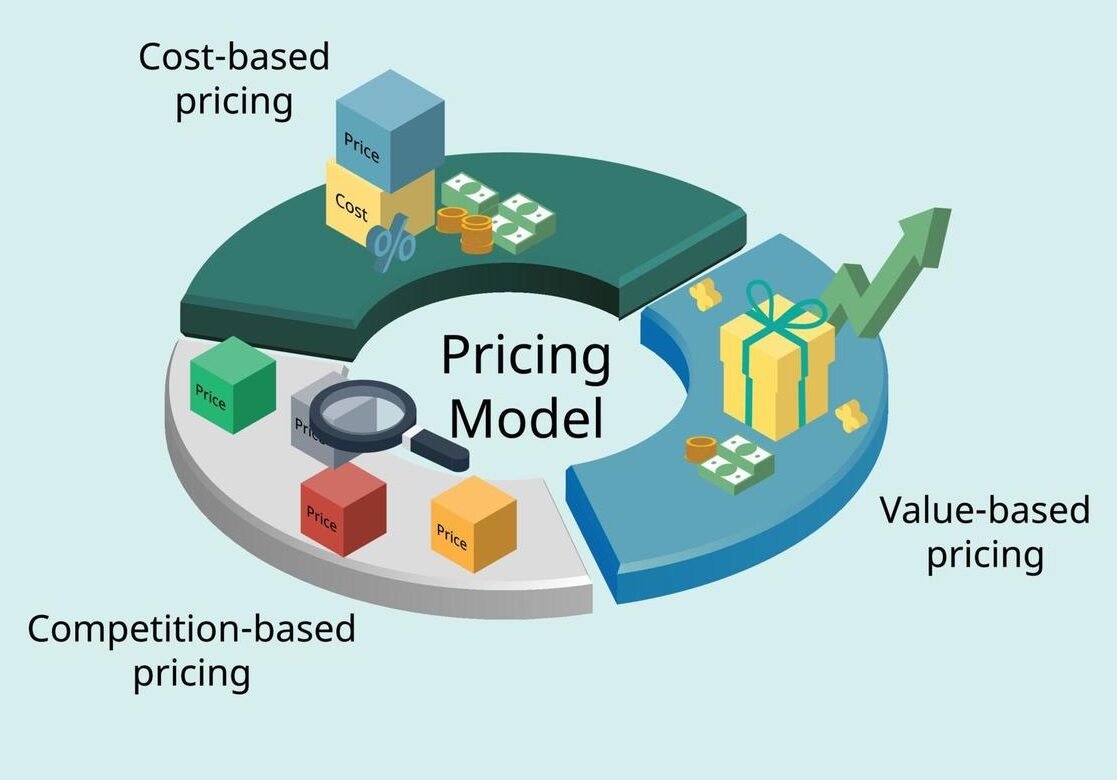Best Web3 Game Development Company Build Block-chain Games 2025

The gaming industry is experiencing a revolutionary transformation, and partnering with the right web3 game development company has become crucial for success in this evolving landscape. As blockchain technology reshapes how players interact with digital entertainment, businesses worldwide are seeking expert development partners who can navigate the complexities of decentralized gaming ecosystems.
A professional web3 game development company brings specialized expertise in blockchain integration, smart contract development, NFT implementation, and play-to-earn mechanics that traditional game studios simply cannot match. With the global Web3 gaming market projected to reach $184 billion by 2035, choosing an experienced development partner isn’t just an investment—it’s a strategic necessity for capturing this unprecedented growth opportunity.
Why Choose a Specialized Web3 Game Development Company?
The complexity of Web3 gaming requires deep technical expertise that goes far beyond traditional game development. While conventional studios focus on gameplay mechanics and user experience, a dedicated web3 game development company must master blockchain protocols, cryptocurrency economics, and decentralized infrastructure alongside creating engaging entertainment experiences.
Technical Expertise That Matters
Modern Web3 games require integration with multiple blockchain networks, each with unique characteristics and capabilities. A professional development team understands the nuances of Ethereum’s security versus Solana’s speed, or Polygon’s cost-effectiveness compared to Binance Smart Chain’s ecosystem advantages. This technical knowledge directly impacts your game’s performance, user experience, and long-term viability.
Smart contract development represents another critical specialization. These self-executing contracts power everything from in-game asset ownership to complex tokenomics systems. A single coding error in a smart contract can result in catastrophic financial losses, making experienced blockchain developers essential for any serious Web3 gaming project.
Understanding Gaming Economics in Decentralized Environments
Web3 games operate on fundamentally different economic principles than traditional titles. Play-to-earn mechanics, NFT marketplaces, and token-based governance systems require careful balance to maintain engaging gameplay while ensuring sustainable economics. An experienced web3 game development company understands how to design these systems to benefit players while maintaining profitability for developers.
The most successful Web3 games create genuine value for players through meaningful ownership of digital assets. This requires a sophisticated understanding of both gaming psychology and cryptocurrency economics—expertise that comes only through hands-on experience in the blockchain gaming space.
Core Services Offered by Leading Web3 Game Development Companies

Professional Web3 development agencies provide comprehensive services that span the entire development lifecycle, from initial concept through post-launch support and community management. Understanding these services helps you evaluate potential development partners and ensure your project receives the support it needs.
Blockchain Integration and Smart Contract Development
The foundation of any Web3 game lies in its blockchain infrastructure. Leading development companies offer end-to-end blockchain integration services, including network selection, smart contract architecture, and security auditing. They design custom smart contracts that handle everything from asset ownership and trading to complex game mechanics and reward distribution systems.
Security auditing represents a crucial component of smart contract development. Professional teams conduct thorough testing and third-party audits to identify potential vulnerabilities before deployment. This proactive approach prevents the security breaches that have plagued numerous Web3 projects and protects both developers and players from financial losses.
NFT Integration and Marketplace Development
Non-fungible tokens form the backbone of digital asset ownership in Web3 games. A skilled web3 game development company creates comprehensive NFT systems that include minting mechanisms, metadata management, and integrated marketplace functionality. These systems allow players to truly own their in-game assets and trade them freely with other users.
Marketplace development extends beyond basic trading functionality to include advanced features like auction systems, royalty distribution, and cross-game interoperability. The best development teams design these marketplaces to enhance gameplay rather than distract from it, creating seamless experiences that feel natural to players.
Play-to-Earn Mechanism Design
Sustainable play-to-earn economics require careful balance between player rewards and long-term game viability. Professional development teams design tokenomics systems that incentivize desired player behaviors while maintaining economic stability. This includes creating deflationary mechanisms, staking systems, and governance tokens that give players meaningful input into game development decisions.
The most successful play-to-earn games create multiple revenue streams for players beyond simple grinding mechanics. This might include breeding systems, land ownership, tournament prizes, or creation tools that allow players to build and monetize their content within the game ecosystem.
Technology Stack and Platform Expertise
Modern Web3 game development requires mastery of diverse technology stacks that combine traditional gaming engines with cutting-edge blockchain infrastructure. The choice of technology stack significantly impacts development time, costs, scalability, and user experience.
Blockchain Network Selection and Multi-Chain Support
Different blockchain networks offer unique advantages for gaming applications. Ethereum provides the most mature DeFi ecosystem and largest user base, but suffers from high transaction costs and slower speeds. Solana offers lightning-fast transactions and low fees but has a smaller ecosystem and occasional network stability issues.
Leading development companies provide multi-chain support, allowing games to leverage the strengths of different networks. This might involve using Ethereum for high-value NFT trading while conducting gameplay transactions on faster, cheaper networks like Polygon or Arbitrum. Cross-chain bridge development enables seamless asset transfers between networks, maximizing accessibility for players.
Gaming Engine Integration with Blockchain Technology
Unity and Unreal Engine remain the dominant platforms for game development, but integrating these engines with blockchain technology requires specialized knowledge. Professional Web3 developers create custom plugins and middleware that enable seamless blockchain interactions without compromising game performance or user experience.
The best integration solutions hide blockchain complexity from players while maintaining the benefits of decentralized ownership. This includes implementing gasless transactions, automated wallet creation, and intuitive asset management interfaces that make Web3 games accessible to mainstream audiences.
Wallet Integration and User Experience Optimization
Wallet integration represents one of the biggest barriers to Web3 gaming adoption. Traditional gamers often find cryptocurrency wallets confusing and intimidating. Leading development companies solve this through elegant solutions like embedded wallets, social login systems, and gradual Web3 onboarding that introduces blockchain concepts progressively.
Advanced wallet integration includes features like multi-signature security, hardware wallet support, and mobile-optimized interfaces. The goal is to create Web3 games that feel familiar to traditional gamers while providing the benefits of blockchain technology.
Development Process and Project Management
A systematic development approach ensures Web3 gaming projects are delivered on time, within budget, and with the quality necessary for market success. Professional development companies follow proven methodologies that account for the unique challenges of blockchain gaming development.
Discovery and Planning Phase
Every successful Web3 game begins with thorough planning that addresses both gaming and blockchain considerations. This includes market research, competitor analysis, tokenomics design, and technical architecture planning. The discovery phase identifies potential challenges early and creates roadmaps for addressing them.
Tokenomics design requires particular attention during planning. The economic systems that drive Web3 games are often more complex than the games themselves, requiring careful modeling and testing to ensure sustainability. Professional teams use sophisticated economic modeling tools to predict how token systems will behave under different market conditions.
Iterative Development and Testing
Web3 game development benefits from agile methodologies that allow for rapid iteration and testing. However, blockchain integration adds complexity that requires additional testing phases, particularly for smart contracts and economic systems. Leading development teams implement comprehensive testing protocols that include unit testing, integration testing, and economic stress testing.
Beta testing for Web3 games often involves closed token economies that allow developers to observe player behavior and economic dynamics before full launch. This provides valuable data for fine-tuning game balance and economic parameters.
Launch Strategy and Post-Launch Support
Launching a Web3 game requires coordination across multiple platforms and blockchain networks. Professional development companies provide comprehensive launch support that includes smart contract deployment, marketplace setup, and community management tools.
Post-launch support extends beyond traditional bug fixes to include ongoing economic balancing, new feature development, and community governance implementation. The most successful Web3 games evolve continuously based on player feedback and changing market conditions.
Cost Considerations and Pricing Models

Understanding the investment required for Web3 game development helps businesses plan appropriately and evaluate development partners. Costs vary significantly based on game complexity, blockchain features, and development timeline.
Factors Affecting Development Costs
Game complexity represents the primary cost driver for any development project. Simple puzzle games with basic NFT integration might cost $50,000-$150,000, while complex MMORPGs with sophisticated tokenomics can exceed $1 million. Additional factors include the number of blockchain networks supported, smart contract complexity, and custom marketplace requirements.
Security requirements significantly impact development costs. Comprehensive smart contract auditing, penetration testing, and ongoing security monitoring add substantial expenses but are essential for protecting player assets and maintaining trust. Budget-conscious projects should never compromise on security to reduce costs.
Pricing Models and Payment Structures
Most professional development companies offer flexible pricing models to accommodate different project needs and budgets. Fixed-price contracts work well for clearly defined projects, while time-and-materials arrangements provide flexibility for evolving requirements. Hybrid models combine elements of both approaches.
Some development companies offer revenue-sharing arrangements where they accept lower upfront payments in exchange for ongoing revenue percentages. This can be attractive for startups with limited capital but requires careful contract structuring to align incentives properly.
Return on Investment Considerations
Web3 games often provide superior monetization opportunities compared to traditional titles. Play-to-earn mechanics, NFT sales, and transaction fees can generate substantial ongoing revenue streams. Additionally, successful Web3 games often benefit from strong community engagement and organic marketing through player-driven promotion.
The most successful Web3 games create sustainable economies that benefit all participants. Players earn meaningful rewards, developers generate ongoing revenue, and the broader ecosystem grows through increased adoption and innovation.
Case Studies and Success Stories
Examining successful Web3 games provides insights into effective development strategies and common pitfalls to avoid. These examples demonstrate how professional development teams overcome technical challenges and create engaging player experiences.
Breakthrough Play-to-Earn Successes
Axie Infinity demonstrated the massive potential of play-to-earn gaming, generating over $4 billion in total sales and creating economic opportunities for players worldwide. The game’s success came from combining engaging gameplay with meaningful economic rewards and strong community building.
The Sandbox created a thriving virtual world where players build, own, and monetize their creations. The platform’s success demonstrates the importance of user-generated content and creator economy features in Web3 gaming. Strong partnerships with major brands provided additional validation and marketing support.
Technical Innovation Leaders
Gods Unchained showcased how traditional trading card game mechanics could be enhanced through true digital ownership. The game’s focus on competitive gameplay first, with blockchain features supporting rather than dominating the experience, provides a model for mainstream Web3 adoption.
Big Time Games created an innovative approach to NFT integration that feels natural to traditional gamers. The game’s “cosmetic NFTs” provide personalization options without creating pay-to-win dynamics, demonstrating how blockchain features can enhance rather than compromise game balance.
Lessons from Development Challenges
Not all Web3 games achieve success, and understanding common failure points helps inform better development decisions. Many early projects focused too heavily on tokenomics at the expense of engaging gameplay, resulting in unsustainable economies and declining player bases.
Technical challenges around scalability and user experience have derailed numerous promising projects. These examples highlight the importance of choosing experienced development partners who understand both gaming and blockchain technology requirements.
Also Read: Japanese Game Developer Gumi Plans to Buy and Stake Bitcoin
Future Trends and Opportunities in Web3 Gaming
The Web3 gaming landscape continues evolving rapidly, with new technologies and approaches emerging regularly. Understanding these trends helps businesses make informed decisions about development priorities and market positioning.
AI Integration and Autonomous Worlds
Artificial intelligence is becoming increasingly important in Web3 gaming, enabling dynamic content generation, personalized experiences, and autonomous game worlds that evolve without direct developer intervention. AI-powered NPCs, procedural content generation, and intelligent economic balancing represent significant opportunities for innovation.
Autonomous worlds take this concept further, creating game environments that operate independently through smart contracts and AI systems. These persistent worlds continue functioning even when developers are offline, creating new possibilities for player-driven storytelling and emergent gameplay.
Cross-Game Interoperability and Metaverse Integration
True interoperability between different games and virtual worlds represents the ultimate vision for Web3 gaming. Players will carry assets, achievements, and identities across multiple gaming experiences, creating unprecedented value for digital ownership.
Early examples of cross-game integration demonstrate the technical feasibility of this vision, but widespread adoption requires industry-wide standards and cooperation. Development companies that understand these emerging standards will be best positioned to capitalize on interoperability opportunities.
Mainstream Adoption and Regulatory Clarity
As regulatory frameworks mature and user experience improves, Web3 gaming is moving toward mainstream adoption. Traditional gaming companies are beginning to experiment with blockchain features, while crypto-native studios are improving their game design capabilities.
This convergence creates opportunities for development companies that can bridge both worlds, helping traditional studios integrate Web3 features while assisting crypto teams in creating more engaging gameplay experiences.
Conclusion
The Web3 gaming revolution is creating unprecedented opportunities for businesses ready to embrace blockchain technology and decentralized gaming economics. Success in this space requires partnering with a web3 game development company that combines deep technical expertise with proven game development capabilities.
As the industry matures and mainstream adoption accelerates, the window for first-mover advantage continues to narrow. Forward-thinking businesses that invest in professional Web3 game development today will be best positioned to capture the massive growth opportunities emerging in blockchain gaming.
FAQs
Q: How much does it cost to develop a Web3 game?
A: Web3 game development costs range from $50,000 for simple games to over $1 million for complex MMORPGs. Factors include game complexity, blockchain features, security requirements, and development timeline. Most professional projects fall between $200,000-$500,000.
Q: How long does Web3 game development take?
A: Development timelines typically range from 6-18 months, depending on complexity. Simple games with basic blockchain integration can be completed in 6-9 months, while sophisticated games with custom tokenomics and multiple blockchain integrations may require 12-18 months or longer.
Q: Which blockchain is best for gaming applications?
A: The optimal blockchain depends on specific game requirements. Ethereum offers the largest ecosystem, but at higher costs. Solana provides speed and low fees. Polygon offers Ethereum compatibility with better performance. Many games use multi-chain approaches to optimize for different use cases.
Q: What makes Web3 games different from traditional games?
A: Web3 games feature true digital asset ownership through NFTs, play-to-earn mechanics, decentralized governance, and interoperability between different games. Players own their in-game assets and can trade them freely, creating new economic opportunities.
Q: How do I choose the right Web3 game development company?
A: Evaluate companies based on blockchain expertise, game development experience, security track record, post-launch support, and portfolio quality. Look for teams that understand both gaming and cryptocurrency economics, with proven experience launching successful Web3 games.




